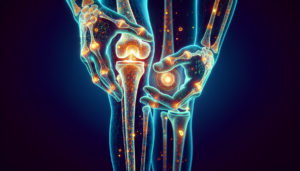Innovative Therapies for Improving Arterial Function
Innovative Therapies for Improving Arterial Function: A Comprehensive Overview
Understanding Arterial Function
Arterial function is critical to overall cardiovascular health. Healthy arteries enable efficient blood flow, delivering oxygen and nutrients to tissues while facilitating the removal of waste products. As we age or due to lifestyle factors, arterial function can decline, leading to increased risks of cardiovascular diseases, including hypertension, atherosclerosis, and heart attack. Therefore, innovative therapies aimed at restoring and enhancing arterial function are essential for maintaining cardiovascular health.
Key Factors Influencing Arterial Health
Endothelial Function
The endothelium is the thin layer of cells lining blood vessels. It plays a crucial role in regulating vascular tone and maintaining blood flow. An intact endothelium produces nitric oxide (NO), a vasodilator that allows vessels to relax and widen. Endothelial dysfunction is often the first step in the progression of atherosclerosis.
Inflammation
Chronic inflammation contributes to arterial dysfunction and plaque formation. Markers like C-reactive protein (CRP) can indicate systemic inflammation levels. Addressing inflammation is vital for reversing or preventing arterial damage.
Lipid Metabolism
High levels of low-density lipoprotein (LDL) cholesterol can lead to plaque buildup in the arteries. Therapies aimed at modifying lipid profiles are critical for improving arterial function.
Blood Sugar Levels
Hyperglycemia impacts arterial health by promoting inflammation and oxidative stress. Management of blood sugar is essential, particularly for individuals with diabetes.
Innovative Therapies for Enhancing Arterial Function
Pharmacological Interventions
Statins
Statins are widely used to lower cholesterol levels and improve endothelial function. They have pleiotropic effects, including reducing inflammation and promoting nitric oxide production, both of which are beneficial for arterial function.
Angiotensin-Converting Enzyme (ACE) Inhibitors
ACE inhibitors can improve endothelial function by decreasing blood pressure and reducing strain on arterial walls. They also have beneficial effects on renal function, which is indirectly related to vascular health.
Novel Anti-inflammatory Agents
Research is actively exploring anti-inflammatory agents such as Canakinumab, which targets IL-1β signaling. These agents may reduce the risk of cardiovascular events by targeting the underlying inflammation linked to atherosclerosis.
Lifestyle Modifications
Diet
A Mediterranean diet, rich in omega-3 fatty acids, antioxidants, and fiber, has been associated with improved endothelial function. Foods like fatty fish, nuts, whole grains, and plenty of fruits and vegetables can enhance arterial health.
Physical Activity
Regular exercise is a cornerstone of arterial health. Aerobic and resistance training enhance endothelial function, reduce arterial stiffness, and improve lipid profiles. Even moderate activity, such as brisk walking, can yield significant benefits.
Weight Management
Obesity is closely linked to impaired arterial function. Effective weight management strategies, including dietary interventions and increased physical activity, can substantially improve arterial health.
Advanced Therapies
Gene Therapy
Gene therapy holds promise for directly targeting the underlying mechanisms of arterial dysfunction. By delivering genes that encode for beneficial proteins, such as nitric oxide synthase, it aims to improve endothelial function and reduce plaque formation.
Regenerative Medicine and Stem Cell Therapy
Stem cell therapy is being studied for its potential to regenerate damaged vascular tissue. Mesenchymal stem cells can promote repair and improve blood flow in compromised arteries, leading to enhanced arterial function.
Lipoprotein(a) Targeting
Lipoprotein(a), a lipid particle linked to cardiovascular disease, has been the focus of recent therapies. Agents like Pelacarsen aim to lower lipoprotein(a) levels, potentially reducing vascular risk and improving arterial health.
Non-Pharmacological Treatments
Extracorporeal Shockwave Therapy (ESWT)
ESWT has emerged as a non-invasive method for enhancing blood flow and promoting tissue regeneration. The therapy uses low-energy shockwaves to stimulate neovascularization, thereby improving overall arterial function.
Nutraceuticals
Nutraceuticals such as L-arginine, omega-3 fatty acids, and polyphenols (found in fruits and vegetables) have shown potential in improving endothelial function and arterial health. Their cardiovascular benefits warrant further investigation.
Advanced Monitoring and Management Techniques
Wearable Technology
The advancement of wearable technology has enabled continuous monitoring of cardiovascular health metrics such as heart rate, blood pressure, and activity levels. These devices provide real-time data that can help optimize lifestyle changes and medication adherence, ultimately enhancing arterial function.
Telehealth Services
Telehealth services allow individuals to receive health care remotely, making it easier to manage conditions that impact arterial health. Regular consultations with healthcare providers can lead to timely adjustments in treatment plans and lifestyle modifications.
Personalized Medicine
The shift toward personalized medicine allows for tailored therapies based on genetic, environmental, and lifestyle factors. By understanding individual risk profiles, healthcare providers can implement targeted interventions to improve arterial function.
Future Directions in Arterial Health Innovation
Artificial Intelligence and Machine Learning
AI and machine learning are being integrated into cardiovascular research to identify patterns, predict disease progression, and enhance treatment strategies. These technologies hold promise for personalized therapy development.
3D Bioprinting
3D bioprinting technology can potentially create vascular grafts or cell-laden constructs for vascular repair. As techniques evolve, this technology may revolutionize treatments for advanced arterial disease.
Microbiome Research
Recent studies suggest that gut health, influenced by the microbiome, can impact cardiovascular health. Probiotics and prebiotics might play a role in improving endothelial function through their effects on inflammation and metabolic health.
Conclusion
Innovative therapies for improving arterial function represent a dynamic field of research, advancing our understanding of cardiovascular health. From pharmacological interventions and lifestyle modifications to cutting-edge technologies, these approaches offer a multifaceted strategy for enhancing arterial health. Continuous research and innovation are essential for translating these advancements into clinical practice, allowing for improved outcomes for individuals at risk of cardiovascular diseases.







